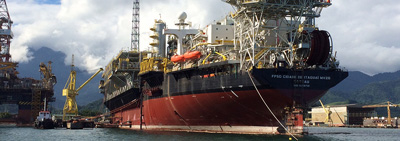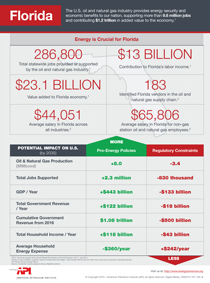 A new Wood Mackenzie study commissioned by the American Petroleum Institute finds that pro-development regulations for oil and natural gas development in the United States could dramatically improve the nation’s economic prospects for the foreseeable future. The study contends that nationally, by 2035, pro energy policies could yield an additional:
A new Wood Mackenzie study commissioned by the American Petroleum Institute finds that pro-development regulations for oil and natural gas development in the United States could dramatically improve the nation’s economic prospects for the foreseeable future. The study contends that nationally, by 2035, pro energy policies could yield an additional:
· 2.3 million US jobs
· $443 billion in gross domestic product per year
· $122 billion in tax revenues
What could these findings mean to Florida? In the blog post included below, online on API’s blog “EnergyTomorrow.org,” we explore the oil and natural gas industry’s intrinsic value to Florida and detail how allowing crude oil exports can bode well for Floridians.
Energizing Florida
Our series highlighting the economic and jobs impact of energy in each of the 50 states continues today with Florida. We started our focus on the state level with Virginia on June 29. All information covered in this series can be found online here, arranged on an interactive map of the United States. State-specific information across the country will be populated on this map as the series continues.
As we can see with Florida, the energy impacts of the states individually combine to form energy’s national economic and jobs picture: 9.8 million jobs supported and $1.2 trillion in value added.
Click here to bring up a two-page snapshot of energy’s benefits to Florida.
The top-line numbers for Florida: more than 286,000 jobs supported statewide, according to a PwC study issued in 2013; over $23 billion added to the state economy; $13 billion contributed to the state’s labor income.
Page 2 of the document highlights the promising economic opportunities for Floridians if crude oil exports are allowed. If federal restrictions on U.S. crude exports are lifted Florida could add up to 10,736 jobs and more than one billion dollars to the state economy in 2020.
We’ve now seen reports -- from Columbia University, IHS, ICF, Brookings, the Aspen Institute, the Government Accountability Office, the Congressional Budget Office, the Energy Information Administration (EIA) and others – all pointing to the same conclusions: Blocking trade in crude oil harms consumers, it harms the economy, and it undermines America’s role as a global leader.
Crude oil exports would put downward pressure on crude on U.S. gasoline prices. U.S. weighted average petroleum product prices are expected to decline as much as 2.3 cents per gallon 2015–2035 when U.S. crude exports are allowed. The greatest potential annual decline is 3.8 cents per gallon in 2017. These price decreases for gasoline, heating oil and diesel could save American consumers up to $5.8 billion per year, on average, over the 2015–2035 period.
When added up across all of the states that can benefit from exports, nationally, LNG and crude exports could significantly reduce our trade deficit, increase government revenues, grow the economy, and support millions of U.S. jobs in engineering, manufacturing, construction, and facility operations.
Energy is critically important to Florida, serving as a key engine for the state economy – expanding job opportunities and offering the hope of prosperity to individual Floridians and their families.
The future benefits of energy for Florida – and the rest of the country – largely depend on national decisions on the country’s energy path. A new Wood Mackenzie study contrasts the benefits that a set of pro-development policies could have on energy supplies, jobs, the economy and American households with the likely negative effects on energy of regulatory constrained policies. The key comparisons are found on the first page of the linked document.
Energy is essential for all facets of our daily lives, from powering national, state and local economies to powering the family vehicle. Safe, responsible development of domestic oil and natural gas resources is linked to individual prosperity, energy security and basic liberties.


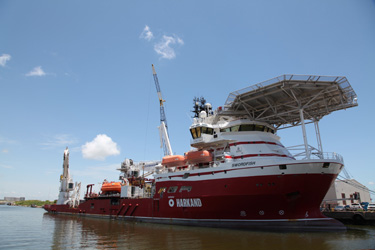 The vessel comes fitted with a new build 18-man self-propelled hyperbaric lifeboat (SPHL) for evacuation of the divers under saturation in case of an emergency. This SPHL can be coupled with a newly built and dedicated portable hyperbaric rescue facility (HRF) to ensure safe decompression of divers.
The vessel comes fitted with a new build 18-man self-propelled hyperbaric lifeboat (SPHL) for evacuation of the divers under saturation in case of an emergency. This SPHL can be coupled with a newly built and dedicated portable hyperbaric rescue facility (HRF) to ensure safe decompression of divers.

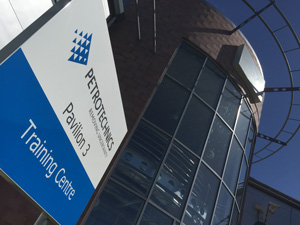
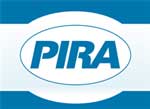 NYC-based
NYC-based  Hoover’s new wash line facility is equipped with experienced staff who are licensed to clean a wide variety of hazardous and non-hazardous materials. The site hosts a full range of tank cleaning services including: easy clean (steam or flush), moderate clean (caustic or detergent), difficult clean (boosted caustic or pre-solve), exterior clean with internal process or exterior clean only.
Hoover’s new wash line facility is equipped with experienced staff who are licensed to clean a wide variety of hazardous and non-hazardous materials. The site hosts a full range of tank cleaning services including: easy clean (steam or flush), moderate clean (caustic or detergent), difficult clean (boosted caustic or pre-solve), exterior clean with internal process or exterior clean only. A new
A new 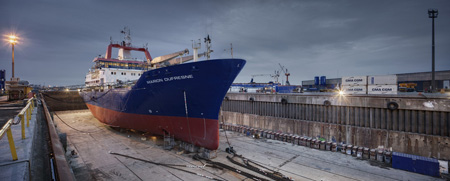 The renowned French research vessel, Marion Dufresne II left
The renowned French research vessel, Marion Dufresne II left  After almost eight decades of Pemex monopoly, the Mexican energy sector is entering a new era of foreign oil company participation. A decade of steady decline in domestic oil & gas production has incentivized the Mexican government to lift the regulations and allow international companies to start developing offshore projects in Mexican waters. The government is keen to attract private investors to its energy sector with the hope of kick starting its struggling economy.
After almost eight decades of Pemex monopoly, the Mexican energy sector is entering a new era of foreign oil company participation. A decade of steady decline in domestic oil & gas production has incentivized the Mexican government to lift the regulations and allow international companies to start developing offshore projects in Mexican waters. The government is keen to attract private investors to its energy sector with the hope of kick starting its struggling economy. Crowley Maritime Corp.’s
Crowley Maritime Corp.’s 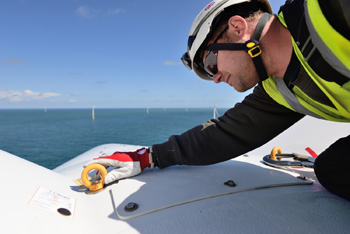 A 3sun technician working at height on a wind turbine
A 3sun technician working at height on a wind turbine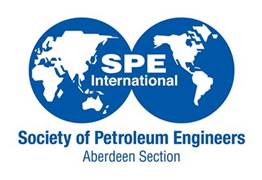 During Offshore Europe, a panel of leading international industry experts will discuss the preconceived perceptions that students and graduates have of a career in oil and gas, and how they differ from the experiences of those operating in the sector.
During Offshore Europe, a panel of leading international industry experts will discuss the preconceived perceptions that students and graduates have of a career in oil and gas, and how they differ from the experiences of those operating in the sector.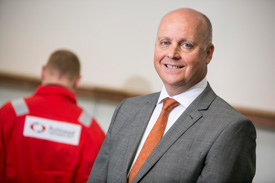 Tim Sheehan, commercial director at Ashtead, said: “In today’s environment and with increasingly sophisticated kit, it is crucial that companies have the skills and competence to install, configure and maintain this equipment. Maximising returns and minimising costs are priorities right across the industry and we are able to equip those on our courses with the knowledge to make best use of the tools available to them as the industry tackles increasingly complex projects in deeper and more hostile environments.
Tim Sheehan, commercial director at Ashtead, said: “In today’s environment and with increasingly sophisticated kit, it is crucial that companies have the skills and competence to install, configure and maintain this equipment. Maximising returns and minimising costs are priorities right across the industry and we are able to equip those on our courses with the knowledge to make best use of the tools available to them as the industry tackles increasingly complex projects in deeper and more hostile environments.